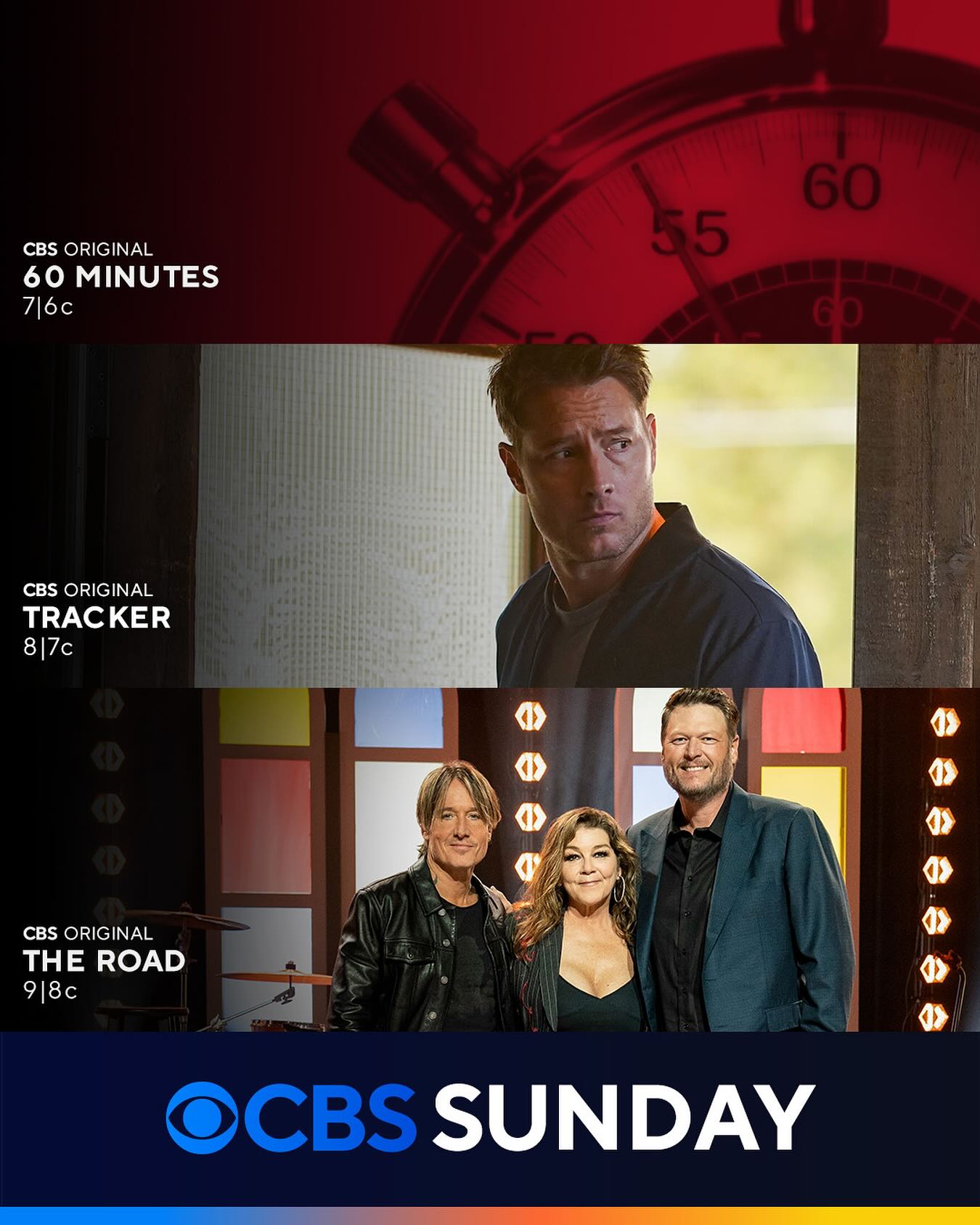
This may be the closest we’ve gotten yet to seeing an apples-to-apples ranker of what TV viewers really are watching these days, regardless of platform. Nielsen is concluding the first season that we have a full list of how entertainment fare (sorry, no sports here or series lasting less than four episodes) is performing on multiple platforms after 35 days — via over-the-air, on demand or streaming.
And here’s the good news for broadcast: People are still watching a lot from the old school medium. Especially on CBS. The network landed six slots on the list of the 20 most-watched series among total viewers across the board: “Tracker,” “Matlock,” “Georgie & Mandy’s First Marriage,” “Ghosts,” “Elsbeth” and “Watson.” (This counts views on CBS, via DVR, on its website or on Paramount+.) ABC is the only other broadcast network in the top 20, with two.
In a world where we binge-watch one day and channel surf the next, the battle between traditional TV and streaming has never been more intense. Nielsen just dropped its first-ever full season multiplatform ratings, and the results are as juicy as a season finale cliffhanger.
Guess what? CBS won among broadcast networks, largely thanks to its breakout hit ‘Tracker’. But despite that win, it’s Netflix’s ‘Squid Game’ that continues to reign as the global juggernaut, redefining what “success” means in today’s viewing landscape. Let’s break down what happened — and why it matters to you, whether you’re a die-hard streamer, old-school TV lover, or content creator looking for the next big trend.
The Broadcast Comeback — How CBS Took the Lead
CBS Still Has Juice in the Streaming Era
Think traditional networks are dead? Think again. CBS proved it’s not just surviving — it’s thriving, racking up impressive numbers on both linear TV and digital platforms.
‘Tracker’ Becomes a Ratings Powerhouse
One of the biggest reasons CBS pulled ahead? A little show called ‘Tracker’. This suspenseful drama grabbed audiences across platforms, offering the kind of gritty storyline that keeps viewers coming back.
Multiplatform Strategy Pays Off
CBS played it smart — leveraging both live TV and digital platforms like Paramount+ and CBS.com to reach a wider audience. That’s the multiplatform game: be everywhere your viewers are.
Streaming’s Dark Horse — ‘Squid Game’ Still Leads the Pack
The Netflix Effect
Netflix’s ‘Squid Game’ isn’t just a hit — it’s a cultural phenomenon. It dominated viewership again, long after its release. This isn’t just about numbers; it’s about impact.
Global Reach Beats Local Ratings
While CBS rules in the U.S., ‘Squid Game’ crushed globally, proving once again that streaming breaks borders in a way traditional broadcast can’t match.
Algorithm vs. Appointment Viewing
Netflix mastered the art of pushing content through personalized recommendations, while CBS still leans into scheduled programming. Both work — but one scales faster worldwide.
Breaking Down the Nielsen Data
What the Multiplatform Ratings Actually Mean
This isn’t your grandma’s TV ratings system. Nielsen’s new multiplatform methodology accounts for live TV, DVR, VOD, and streaming all in one place.
Why It’s a Big Deal
For the first time, we can truly compare apples to apples: how shows perform across all major platforms, not just on air.
What Made ‘Tracker’ Work for CBS
Character-Driven, Edge-of-Your-Seat TV
People are hungry for relatable stories with a twist. ‘Tracker’ delivered character development + suspense, the old-school formula that still works.
Smart Marketing & Social Buzz
CBS didn’t just put the show on TV — they built hype on socials, dropped teasers on YouTube, and created FOMO that drove viewership up.
How ‘Squid Game’ Changed the Global TV Game
Subtitles and Dubs? No Problem.
Who would’ve guessed a Korean-language series would dominate globally? But that’s Netflix’s secret sauce: local content, global appeal.
Meme Culture = Built-In Promotion
‘Squid Game’ basically marketed itself. Memes, challenges, Halloween costumes — it became unavoidable. That’s virality money can’t buy.
The Multiplatform Showdown — CBS vs. Netflix
Quality vs. Quantity
CBS invested in a few high-quality tentpole shows. Netflix? It throws spaghetti at the wall — but when something sticks, it really sticks.
Viewer Habits Are Splitting in Two
There’s a divide: some people still like weekly episodes and cable TV. Others prefer bingeing full seasons in one night. Nielsen’s data proves both groups are huge.
What This Means for Advertisers and Creators
Follow the Eyeballs
If you’re in advertising or content creation, the takeaway is simple: go where the viewers are. CBS still commands huge audiences, but streaming unlocks a bigger, global stage.
Brands Are Now Multiplatform Too
Smart advertisers don’t choose between TV and streaming — they integrate campaigns across both, just like CBS and Netflix did.
The Psychology of Viewership
Why People Still Love Network TV
It’s comforting. Predictable. Familiar. CBS knows how to build routine into entertainment, which keeps audiences loyal.
Why Streaming Wins Attention
Streaming is like the candy aisle of TV — it’s exciting, endless, and personalized. That’s how Netflix keeps engagement high.
The Future of TV Ratings
Traditional Ratings Are Dead. Long Live Multiplatform.
This new Nielsen model might just become the industry standard. Why? Because TV is no longer one-size-fits-all.
Expect More Hybrid Hits
In the future, every hit show will live across platforms — from linear to app, from TikTok teasers to Hulu replays.

So, Who Really Won?
CBS Takes the Crown, But Netflix Rules the Kingdom
CBS won the broadcast game, no doubt. But Netflix’s ‘Squid Game’ dominated hearts, memes, and culture worldwide. It’s not a rivalry — it’s a new ecosystem.
Conclusion: Broadcast Isn’t Dead — It’s Just Sharing the Stage
We’re living in the most exciting era of TV ever. CBS’s victory proves network TV still has pull, while Netflix shows like ‘Squid Game’ reveal the limitless power of global streaming. One thing’s for sure — the real winners are us, the viewers. With more content, platforms, and choices than ever, it’s a golden age of entertainment.